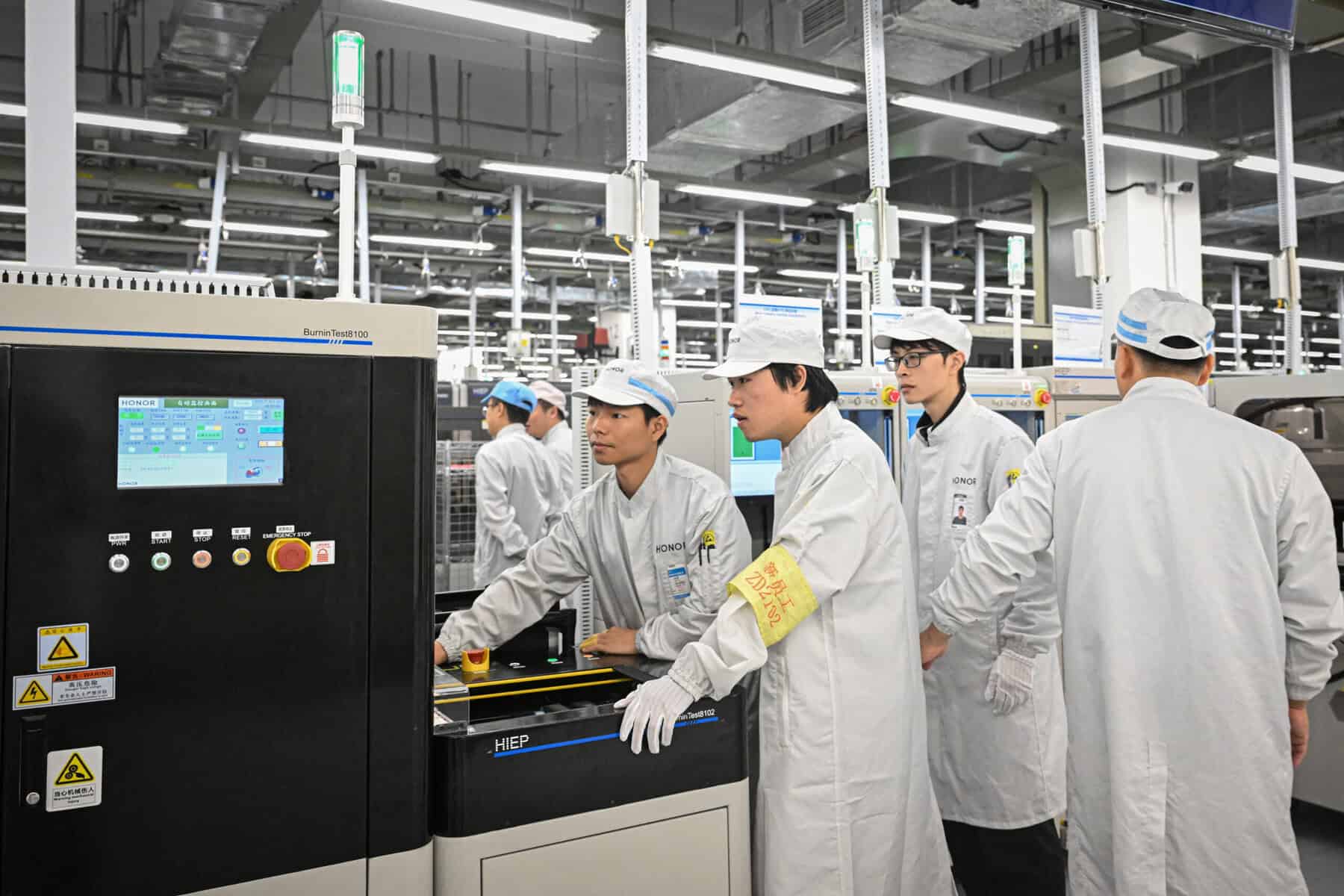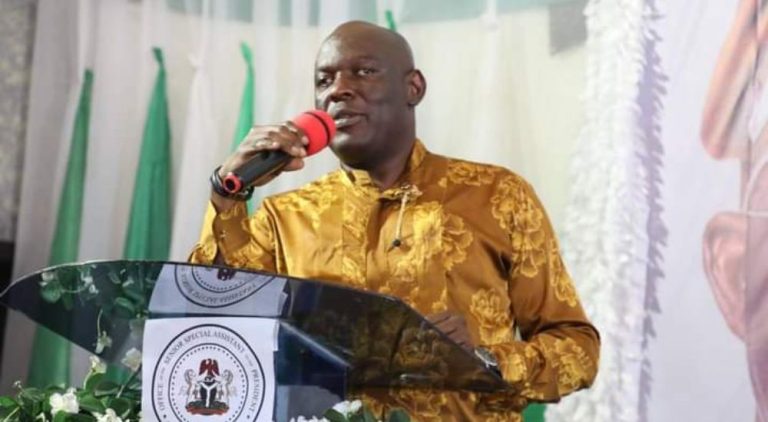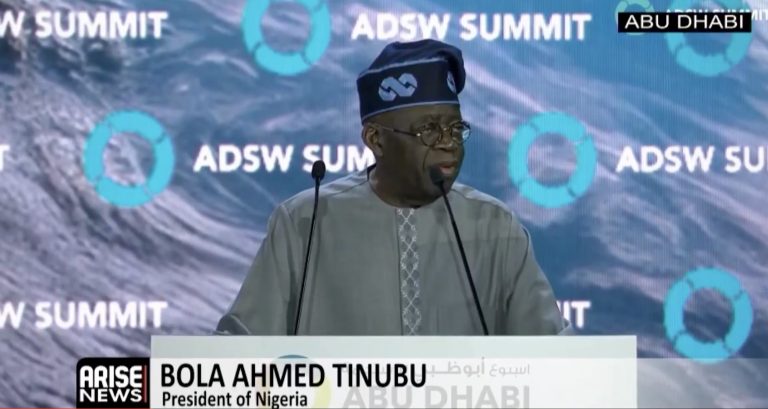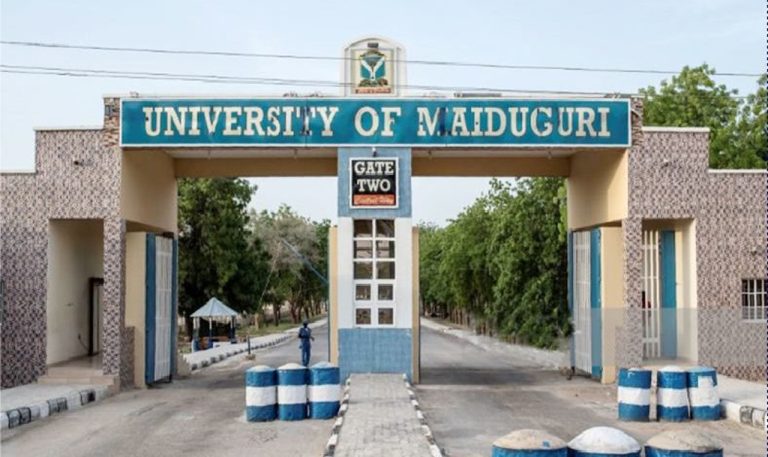
This photo taken on October 22, 2025 shows employees working on an Honor Magic 8 smartphone production line at a factory of Chinese smartphone company Honor in Shenzhen, in southern China's Guangdong province. (Photo by Jade GAO / AFP)
Former Robben Island prisoner and ex-diplomat, Lazarus “Lassy” Chiwayo has expressed concern that South Africa had failed to study, learn and adopt the economic evolution of China, which transformed from a poverty-stricken Asian nation to the second-largest economy in the world within 30 years.
Chiwayo, a former consul-general to China based in Shanghai and a former mayor of Mbombela municipality, said it is an anomaly that South Africa has not been able to grow in the past 30 years, despite having the opportunity to do so.
Lessons from China’s rapid transformation
He was among the panellists who participated in a discussion held as part of the South Africa International Industrial Export exhibition at the Sandton Convention Centre on Friday.
Chiwayo said South Africa should not just focus on trade, investment and money in its dealings with China, but also consider China’s historic evolution, its success story over a 30-year period and how it became a sophisticated and highly industrialised country within 30 years.
“We should be embarrassed that, in fact, we have a country that we could have learned from, with which we have had a relationship since 1996.
“We should have learned how they achieved the miracle of such growth in just 30 years. They surpassed all other highly modernised countries.
“From an agrarian economy, they became the second-most powerful economy in 30 years,” Chiwayo said.
He said South Africa, along with the rest of Africa, is grappling with what Chiwayo termed an “orientation shift”.
This shift indicates that leadership in Africa has been negatively affected by colonialism, which stripped the continent of its resources.
He said African leaders often fall victim to what he described as the “politics of the stomach”.
ALSO READ: China invests $35 million in Mpumalanga solar panel plant
This refers to a situation where, upon encountering money for the first time, their desperate need drives them to prioritise personal gain over broader considerations of the nation.
He likened their behaviour to that of a mouse in front of cheese; they are primarily focused on immediate gratification.
The politics of the stomach versus Asian vision
“I think the major challenge facing Africa is the politics of the stomach. The benefit of leadership in Asia is vision.
“When China, Singapore and other Asian Tigers started thinking, they looked at themselves as a country, where they are and where they want to see themselves in 50 or 100 years.
“Asian leaders also identify the kind of leadership that would help them achieve their vision – that vision never changes, even when leadership changes.
“But in Africa, there is a tendency to restructure the entire administrative structure and chop and change administrative heads so that only loyalists are hired into senior positions to look after the leader.
“African leaders fail to build institutions with inherent capacity, resilience and adaptability.”
He said following its 1949 revolution, China resolved to institute socialism with Chinese characteristics – where the practical conditions of China should dictate what must prevail.
It placed great emphasis on strengthening state-owned enterprises, which played a critical role in the country’s development.
ALSO READ: The Citizen crowned world champions after epic road trip in China
Instead of developing an effective growth strategy, some South African leaders from different parties waste their time on criticising the so-called white monopoly capital and big business leaders, which does not help the country to progress.
Collaboration and industrial growth initiatives
Instead, they should recognise that the white business leaders are their fellow South Africans, with whom they should piggyback and collaborate to strategically position them as partners to help grow the nation’s economy.
Middelburg-born industrial procurement entrepreneur Imram Makama, who is also the national head of the Africa Youth Entrepreneurs South Africa, proposed that South African entrepreneurs, such as small local welding outlets, should be trained to use the latest laser-cutting and welding equipment.
This would help improve the quality and efficiency of their work while moving away from outdated welding methods.
Those laser machines could be imported from China as part of collaboration between the two countries.
Discussions have also taken place with local community projects to procure computer numerical control machines for use by small local entrepreneurs.
Bhala Industries director Thokozani Mandlazi urges Chinese enterprises to not only invest by bringing processed products to South Africa but spares and parts to be assembled in local plants in South Africa to create local jobs.
The event also saw the signing of a memorandum of understanding to build a $35 million (about R600 million) solar panel assembly plant at Nkangala in Mpumalanga.
The plant is expected to be operational towards the end of next year.
NOW READ: US announces deal with China to take control of TikTok



